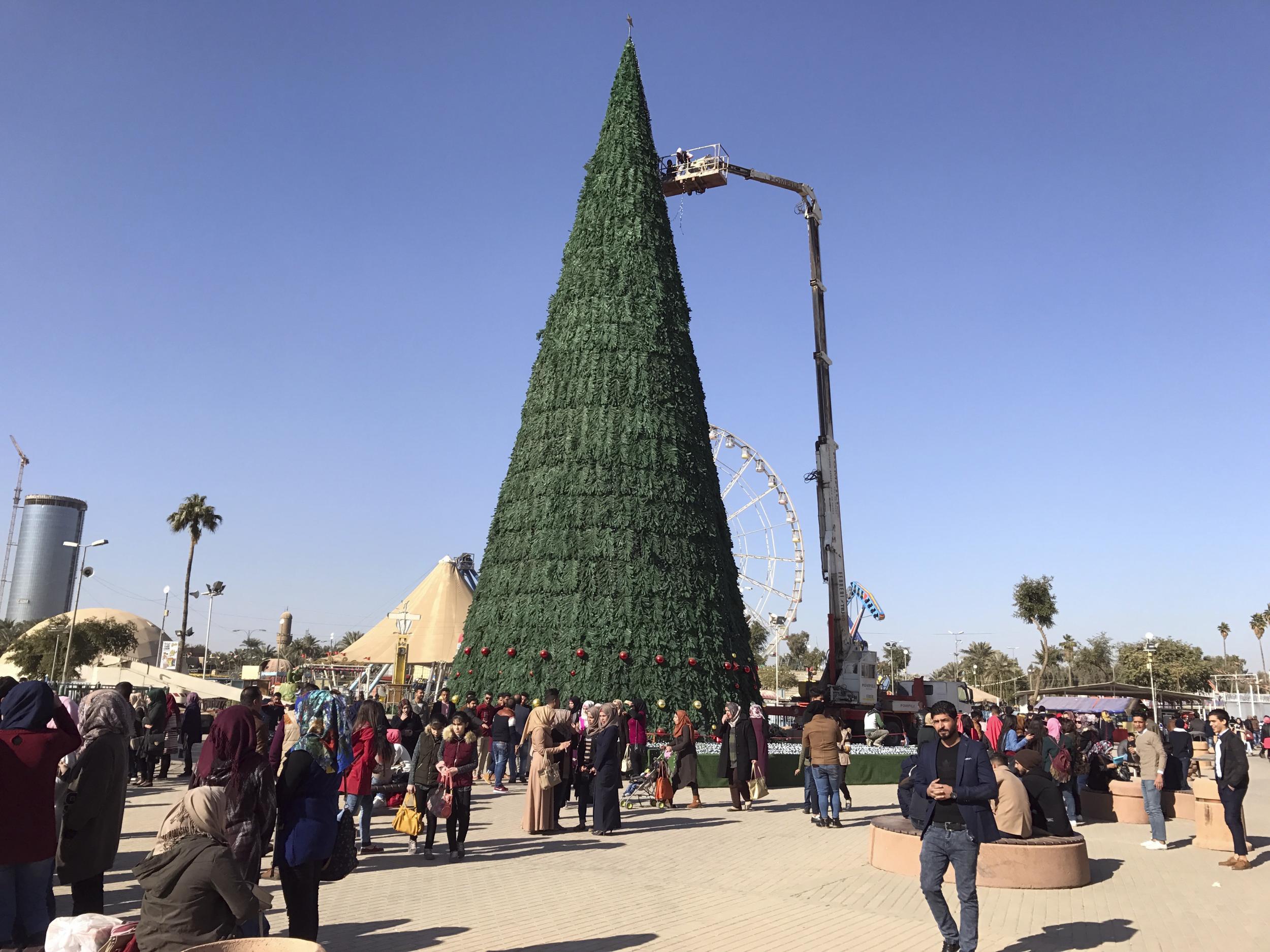Muslim businessman buys giant Christmas tree to show solidarity with Baghdad's Christians
Yassir Saad spent $24,000 (£19,000) to help Iraqis 'forget their anguish' during festive season

Your support helps us to tell the story
From reproductive rights to climate change to Big Tech, The Independent is on the ground when the story is developing. Whether it's investigating the financials of Elon Musk's pro-Trump PAC or producing our latest documentary, 'The A Word', which shines a light on the American women fighting for reproductive rights, we know how important it is to parse out the facts from the messaging.
At such a critical moment in US history, we need reporters on the ground. Your donation allows us to keep sending journalists to speak to both sides of the story.
The Independent is trusted by Americans across the entire political spectrum. And unlike many other quality news outlets, we choose not to lock Americans out of our reporting and analysis with paywalls. We believe quality journalism should be available to everyone, paid for by those who can afford it.
Your support makes all the difference.A Muslim businessman has erected an 85-foot Christmas tree in Baghdad in a sign of solidarity with Christians during the festive season.
Yassir Saad spent $24,000 (£19,000) on the artificial tree, which has a diameter of 33ft (10m), to help Iraqis “forget their anguish” over the war against Isis.
Iraqi forces are continuing to battle insurgent Isis fighters in Mosul, the group's last major stronghold in the country.
Saba Ismael, a visitor to the theme park where the tree has been displayed, said it “represents love and peace“.
“I wish all Iraqi Christians could return to Iraq and live normal and peaceful lives,” she said.
Iraq’s Christian community has been persistently persecuted since the US-led invasion of the country in 2003.
In 2014, Isis stormed into northern Iraq, taking control of Mosul, Iraq's second-largest and once most diverse city.
Extremists marked Christian houses with the Arabic equivalent of the letter “N” for the derogatory term Nazarene and issued threatening ultimatums to leave the city or face death or forced conversion to Islam.
An estimated 20 or 30 Christians are thought to remain in the city. Some have been able to return to communities neighbouring Mosul; however, many have found their homes destroyed or ransacked.
Christians are not the only religious group to be persecuted by Isis.
In August 3 2014, extremist fighters attacked the town of Sinjar in northern Iraq as part of their campaign to eradicate the Yazidi people and “purify” the region of non-Islamic influences.
The group continue to suffer abominable human rights abuses, condemned by the United Nations as genocide.
Additional reporting by Associated Press
Join our commenting forum
Join thought-provoking conversations, follow other Independent readers and see their replies
Comments